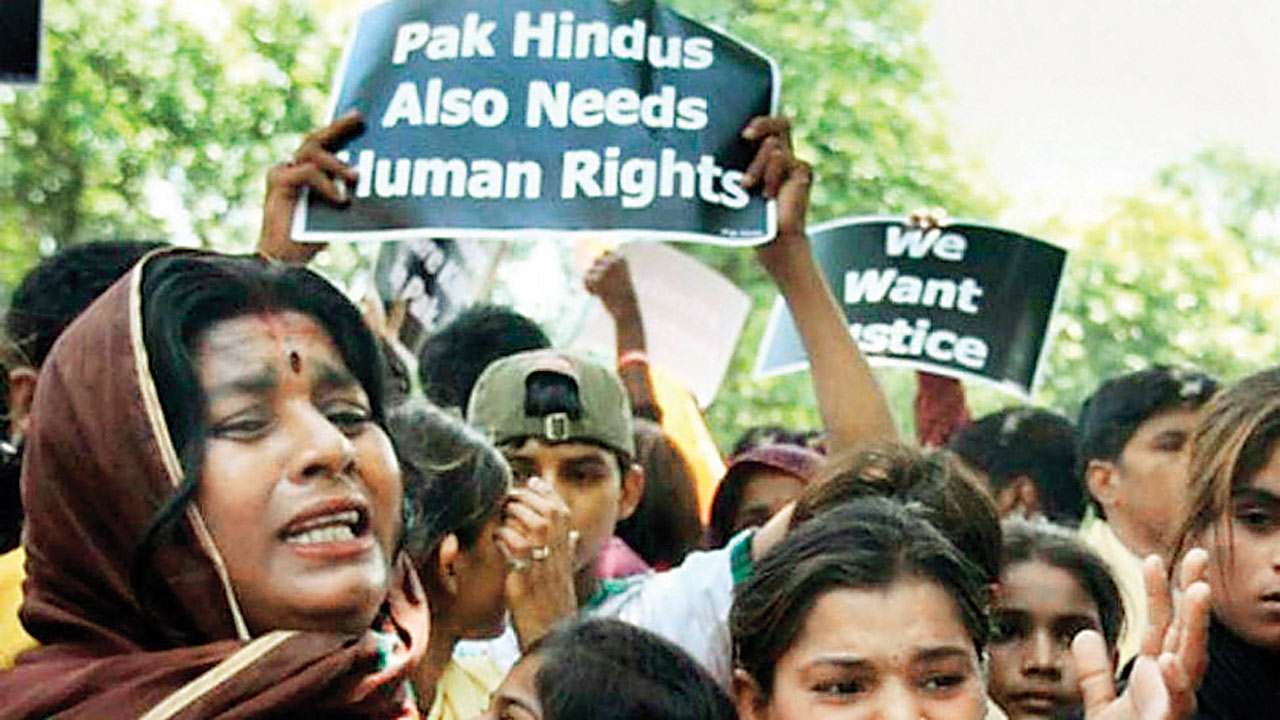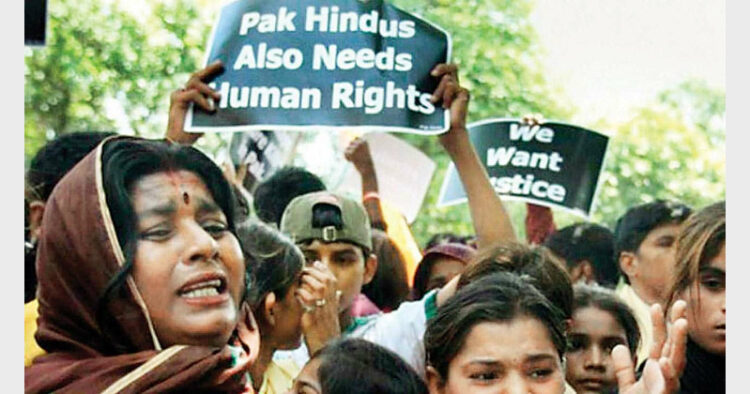
Let us now look into the past track record of Pakistan’s gradually slipping towards radical Islam and how the country has been repeatedly using its notorious blasphemy law against the members of religious minorities as well as few moderate Muslims
Salah Uddin Shoaib Choudhury
When the Supreme Court of Pakistan acquitted Asia Bibi from the death penalty, leaders and members of Tehreek-e-Labbaik Pakistan (TLP) took to the streets calling for protests across the country. A TLP patron, Pir Abdul Qadri called for the killing of the Supreme Court judges who had ruled on the case of Asia Bibi. Pakistani Prime Minister Imran Khan rebuked the protestors for exploiting religious sentiments for political gain, and promised that the country would protect the lives of people at all costs. However, the next day, the government announced that it was in talks with the religious groups who protested the court verdict, and Asia Bibi was put on the exit control list, barring her from leaving Pakistan. Imran Khan went further and released all the arrested protestors of TLP and apologized.
Asia Bibi, a Christian day-laborer was accused of blasphemy in 2010 for her “crime” of taking a sip of water from a well that was not meant for the non-Muslims. Later, she was accused of insulting the Prophet of Israel.
In a deal initiated by the Pakistan government, anti-Asia Bibi protestors were assured that she would not be allowed to leave the country and that the government would not oppose a review petition filed against the Supreme Court’s verdict. The protestors accepted and the Pakistan government did put Asia Bibi’s life in mortal danger.
This particular case of Asia Bibi clearly shows as to how Pakistan has steadily embraced radical Islam, Sharia, and jihadism.
Let us now look into the past track record of Pakistan’s gradually slipping towards radical Islam and how the country has been repeatedly using its notorious blasphemy law against the members of religious minorities as well as few moderate Muslims.
During the rule of military dictator Ziaul Haq in 1980s, a number of clauses were added that expanded the law over the decades. In 1986, Pakistan government passed a law to include the death penalty as punishment, with a claim made that there was an absolute ijma (consensus) in Islamic legal tradition about the death penalty for anyone (Muslim or non-Muslim) for insulting the Prophet. In 1991, the Federal Shariah Court in Pakistan had recognized blasphemy as a hard offense, where a single and simple transgression of Prophet Mohammad was punishable by death with no possibility of pardon or mitigation of sentence. Since 1990, more than a hundred people have been murdered in Pakistan on unproved blasphemy allegations.
Over the years, several individuals have criticized the draconian nature of the law. A private bill was proposed in the Pakistan Parliament in 2010 by the Pakistan People’s Party (PPP) with the demand of amending the blasphemy law by including a due procedure of offense and reporting of cases to a higher-level police official. The bill was never placed on the floor even for discussion and was withdrawn abruptly by the government under pressure from the religious groups as well as top-brasses in Pakistani spy agency ISI.
In 2011, Shahbaz Bhatti, a minority minister and Salman Taseer, the governor of Punjab were killed after they demanded amendment of the blasphemy law. Taseer was killed by Mumtaz Qadri, a follower of the Barelvi sect of Sunni Islam and the governor’s personal security guard.
Mumtaz Qadri’s arrest and subsequent trial saw an outpouring of support for admiration for the murderer by a number of hardline Islamic groups. He was exalted as a hero when he said, it was his religious duty to kill the minister who wanted to amend the blasphemy law.
When Qadri was hung in 2016, millions of his supporters took on the streets across Pakistan and proclaimed him as a martyr. Pakistan government choose the date of Mumtaz Qadri’s execution on February 29, as a precaution so that Qadri’s supporters would not return on the streets to commemorate his death anniversary every year.
Most of the leaders of Pakistani political parties, as well as key brasses in its intelligence and military establishment, firmly believe, without religion playing a defining role in maintaining internal security and its external borders, Pakistan as a state would not have a reason to exist. The military-intelligence establishment’s pathological obsession with legitimizing groups that provide their own warped version of Islam, has made the foundation of Pakistani society unstable and unpredictable.
Deobandi Islam, as compared to Barelvi Islam, is seen as harder Islam, adhering to strict Islamic rituals. Barelvis, on the other hand, were seen as more moderate, following Sufi mysticism and emphasizing a spiritual connection to God. Pakistan’s intelligence military establishment, encouraged by Saudi money for Deobandi madrassas, never worked with Barelvi groups for the Afghan jihad. It instead relied on groups such as the Tehreek-e-Taliban Pakistan, Lashkar-e-Taiba and Lashkar-e-Janghvi, and Deobandi Islam became associated with militant jihad and extremism.
We are aware of Pakistan’s nuclear capabilities. What we don’t yet consider is – these nuclear arsenals may ultimately end up into the grips of radical Islamic jihadists, one day. And that would be a real nightmare for the entire global populace.
(Salah Uddin Shoaib Choudhury is an internationally acclaimed multi-award-winning anti-jihadist journalist, counter-terrorism specialist and editor of Blitz)













Comments